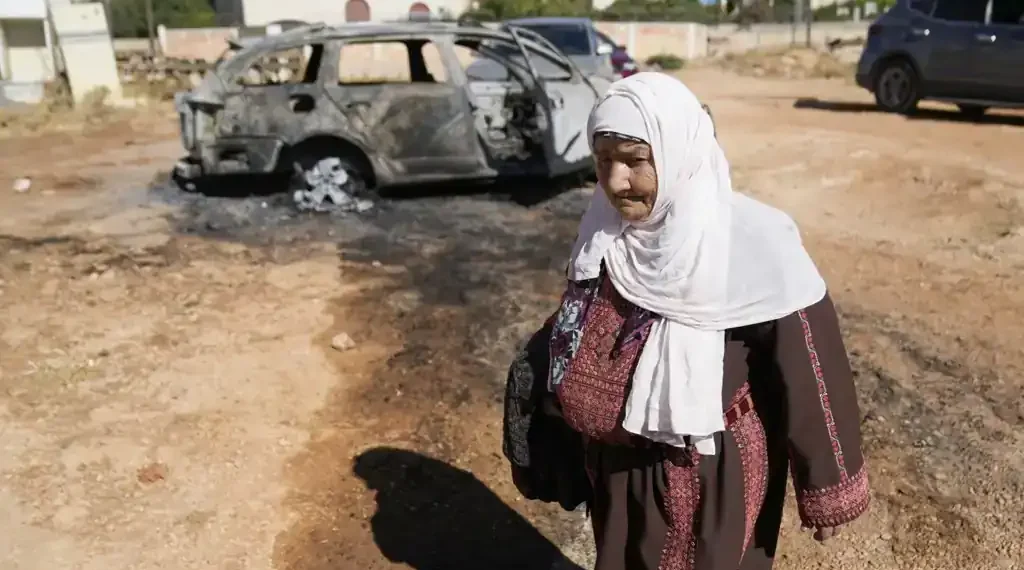Global Push for Two-State Solution Meets Fierce Resistance Amid Gaza War
Published: September 22, 2025, 14:00 EDT
As the war in Gaza intensifies, France and Saudi Arabia are seeking to revive international momentum toward a two-state solution to the Israeli-Palestinian conflict. Their proposal has gained support from several Western nations, but faces significant opposition from Israel, the United States, and domestic political divisions across the region.
Renewed Calls for Palestinian Statehood
France and Saudi Arabia are using the United Nations General Assembly as a platform to push forward a phased plan for Palestinian statehood. The proposal envisions the creation of a demilitarized Palestinian state in Gaza, the West Bank, and East Jerusalem, areas Israel captured during the 1967 Middle East war.
Britain, Canada, and Australia formally recognized a Palestinian state earlier this month, joining nearly 150 nations that have already extended recognition. France is expected to make a similar move during the ongoing UN gathering.
Despite growing international backing, both Israel and the United States remain firmly opposed. Washington has blocked Palestinian representatives from participating in General Assembly proceedings, while Israeli Prime Minister Benjamin Netanyahu has threatened unilateral measures, including potential annexation of parts of the West Bank.
Historical Context and Ongoing Challenges
The two-state framework has long been viewed as the most viable pathway to ending the Israeli-Palestinian conflict, which has spanned more than a century. Supporters argue that it would allow Israel to preserve its identity as a Jewish and democratic state while granting Palestinians sovereignty and rights.
Critics of the status quo note that Palestinians live under varying degrees of Israeli control, with limited autonomy in parts of the West Bank and severe restrictions in Gaza. Major rights groups have warned that the current system amounts to apartheid.
UN Secretary-General António Guterres emphasized the urgency of the issue, stating, “Without a two-state solution, there will be no peace in the Middle East.”
However, efforts to negotiate peace have repeatedly faltered. Talks that began in the early 1990s collapsed amid cycles of violence and the expansion of Israeli settlements, which now house over 500,000 Israeli citizens in the West Bank alongside three million Palestinians. No substantial negotiations have occurred since Netanyahu returned to power in 2009.
Humanitarian Crisis in Gaza
The Gaza Strip remains at the center of the crisis. Following Hamas’ October 7, 2023, attack, Israel launched a military campaign that has devastated the territory. Reports indicate tens of thousands of Palestinian deaths, displacement of nearly 90% of the population, and widespread destruction of civilian infrastructure.
The United Nations has warned of famine in certain areas, while aid groups describe conditions as “uninhabitable.” Israel’s latest offensive threatens to further dismantle Gaza’s largest urban centers.
Netanyahu’s government, already opposed to Palestinian statehood prior to the war, has doubled down on its stance. Meanwhile, critics accuse U.S. policymakers of deprioritizing peace talks in favor of policies that could lead to population displacement.
The French-Saudi Proposal
France and Saudi Arabia’s plan seeks to de-escalate the conflict through a phased approach:
-
An immediate ceasefire in Gaza.
-
Release of hostages held by Hamas.
-
Full Israeli withdrawal from Gaza.
-
Transfer of authority to a politically independent body under the Palestinian Authority.
Hamas would be required to disarm, though the group has not agreed to this condition. The international community, with potential support from peacekeepers, would oversee Gaza’s reconstruction and governance.
The proposal also envisions broader regional integration, including the possibility of Saudi Arabia normalizing ties with Israel, an outcome that could reshape Middle East diplomacy.
Earlier this month, the UN General Assembly approved a nonbinding resolution endorsing the “New York Declaration,” lending symbolic weight to the initiative.
U.S. and Israeli Opposition
The United States and Israel argue that advancing Palestinian statehood under current conditions risks emboldening Hamas and undermining hostage negotiations. Ceasefire talks collapsed in September after an Israeli strike on Hamas negotiators in Qatar, and earlier attempts had already failed in March and July.
Israeli officials contend that a Palestinian state could provide Hamas with a base for future large-scale attacks. Netanyahu has described international recognition of Palestinian statehood as an attack on Israel itself, warning that unilateral moves by other nations will be met with unilateral responses.
Washington has avoided explicitly endorsing annexation but continues to oppose premature recognition of Palestinian sovereignty. U.S. Secretary of State Marco Rubio linked discussions on annexation to the broader statehood debate during recent interviews.
The United Arab Emirates, which normalized relations with Israel through the 2020 Abraham Accords, has warned that annexation would be a “red line,” though it has not outlined potential consequences.
Unresolved Core Issues
The French-Saudi plan avoids addressing some of the most divisive elements of the conflict:
-
Final borders of a Palestinian state.
-
Fate of Israeli settlements in occupied territories.
-
Right of return for Palestinian refugees.
-
Security guarantees for both sides.
-
Status of Jerusalem.
Another obstacle lies in the Palestinian Authority itself. President Mahmoud Abbas, widely criticized for corruption and lack of accountability, has repeatedly postponed elections. Hamas, which won the last national election in 2006, would be excluded unless it disarms and recognizes Israel.
This has led many observers to question whether the proposed framework can deliver lasting peace. Without broad Palestinian support, analysts warn the plan risks becoming another failed roadmap in a long history of stalled negotiations.
Outlook for the Future
Despite renewed diplomatic momentum, the path to a two-state solution remains fraught with challenges. Israel’s political leadership continues to reject Palestinian statehood, the United States has withheld strong support, and Palestinian factions remain divided.
As the conflict in Gaza rages on, the humanitarian toll underscores the urgency of finding a resolution. Whether the French-Saudi plan can bridge decades of mistrust and political deadlock remains uncertain, but it has reignited global debate over one of the world’s most enduring conflicts.
This article was rewritten by JournosNews.com based on verified reporting from trusted sources. The content has been independently reviewed, fact-checked, and edited for accuracy, neutrality, tone, and global readability in accordance with Google News and AdSense standards.
All opinions, quotes, or statements from contributors, experts, or sourced organizations do not necessarily reflect the views of JournosNews.com. JournosNews.com maintains full editorial independence from any external funders, sponsors, or organizations.
Stay informed with JournosNews.com — your trusted source for verified global reporting and in-depth analysis. Follow us on Google News, BlueSky, and X for real-time updates.














